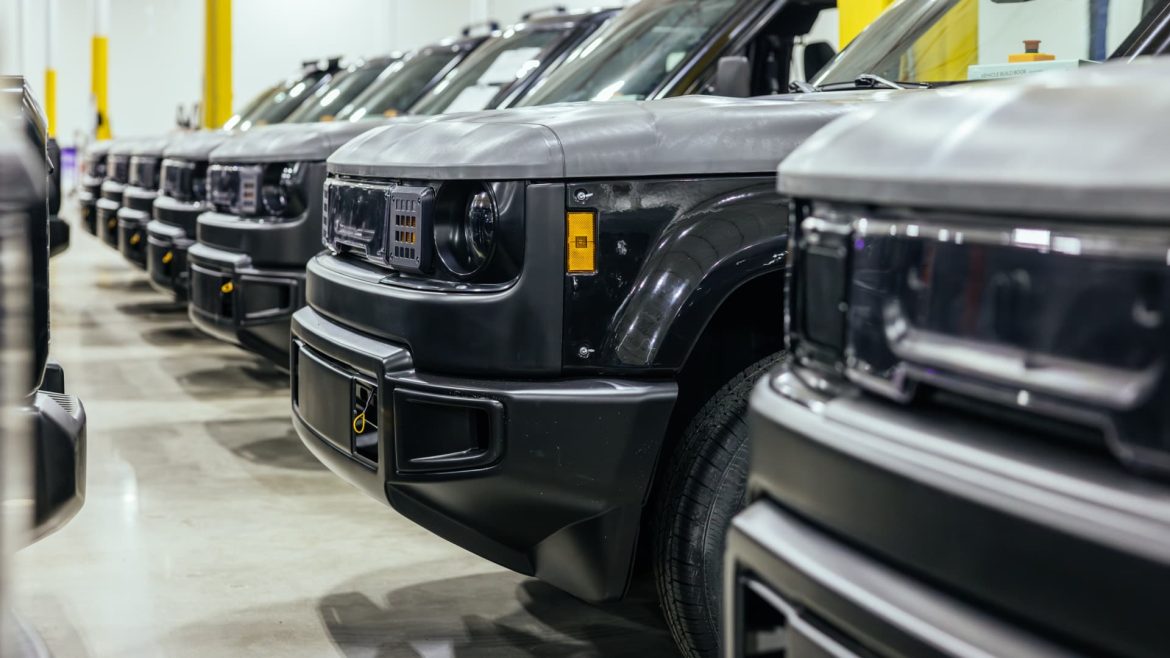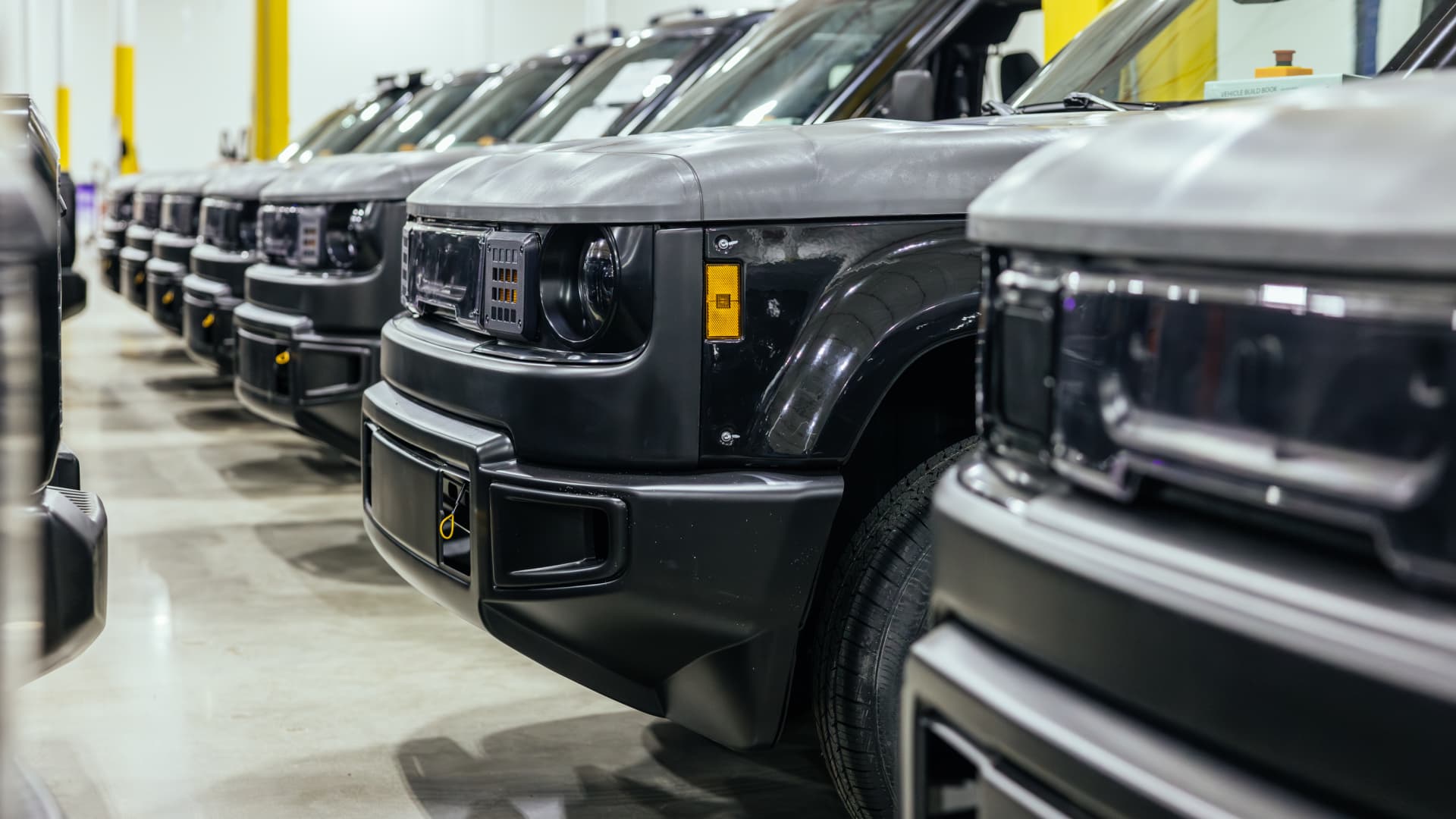Jeff Bezos and the Emergence of Slate Auto: A New Force in Electric Vehicles
The electric vehicle (EV) landscape is witnessing a compelling newcomer: Slate Auto, a stealthy startup based in Michigan fueled by Jeff Bezos’ backing. Founded in 2022 with close ties to other Bezos ventures, Slate Auto is preparing to break into the market with an ambitious proposition—a highly affordable, customizable electric pickup truck priced around $20,000 to $25,000. As the automotive world braces for an influx of new EV offerings, Slate Auto stands out by targeting accessibility and simplicity, setting it apart from industry giants.
—
Origins and Backing: The Bezos Connection
Slate Auto’s roots trace back to Re:Build Manufacturing, another company with Bezos connections, signaling a strategic ecosystem approach to innovation and production. Jeff Bezos’ family office is a significant investor in the startup, joined by other prominent backers such as Mark Walter and Thomas Tull. This financial muscle positions Slate Auto well for achieving its production timelines and market ambitions.
Operating under the radar since its inception, Slate assembled a talented workforce poached from major automotive players like Ford, General Motors, and Harley-Davidson. Their stealth approach has allowed them to develop without the constant scrutiny that often accompanies Silicon Valley EV startups, focusing on pragmatic vehicle design and production readiness.
—
Designing for Affordability and Functionality
Slate Auto’s debut vehicle is an electric pickup truck that eschews the tech-heavy, premium-feeling approach popularized by companies like Tesla. Instead, the Slate Truck is described as minimalistic—basic manual windows, absence of touch screens, and a distinctly analog user experience. This “anti-Tesla” ethos aims to appeal to a broader swath of consumers, especially first-time buyers who may have found EVs previously out of reach financially or technologically daunting.
Priced at around $20,000 after federal tax credits (with list price variably reported between $20,000 and $25,000), this truck undercuts many competitors in the EV pickup market. Despite the low cost, the vehicle boasts a unique modular design, allowing configurations that span from a work truck to an SUV-like setup, giving customers flexibility to tailor the vehicle to their needs.
—
Production Plans and Market Strategy
Slate Auto has announced plans to start production as early as late 2026, with manufacturing set in a repurposed facility in Warsaw, Indiana. This approach mirrors other recent EV startups leveraging existing industrial spaces rather than building massive new “gigafactories,” aiming for agility and cost control.
The company has reportedly accumulated over 100,000 reservations within weeks of announcing the vehicle, indicating a demand hungry for more accessible EV options. Their strategy targets demographics underserved by current offerings—those who might prioritize affordability, basic functionality, and simplicity over luxury and cutting-edge technology.
Furthermore, Slate’s emergence aligns with Bezos’ strategic bets beyond Amazon, representing a quiet but significant move into an industry poised for continued disruption. The involvement of industry veterans in leadership and manufacturing roles hints at a carefully orchestrated plan blending startup agility with established automotive expertise.
—
Potential Impact on the EV Market
Slate Auto’s entry into the EV pickup segment could reshape dynamics in multiple ways:
– Cost Barrier Reduction: By targeting an attainable $20,000 price point after incentives, Slate tackles the biggest obstacle facing wider EV adoption—the upfront cost. This could accelerate EV normalization among budget-conscious consumers.
– Simplification and Reliability: The minimalistic design rejects the tech-heavy trend, potentially appealing to customers wary of software glitches, overcomplicated interfaces, or high repair costs.
– Customization Flexibility: The modular vehicle architecture invites versatility uncommon in mass-market EVs, blurring lines between truck, SUV, and utility vehicle categories.
– Competitive Pressure: Established automakers and startups alike may feel compelled to reassess pricing and design philosophies to retain or expand market share amid the influx of affordable options.
—
Challenges and Outlook
Despite promising beginnings, Slate Auto faces considerable hurdles:
– Market Entrenchment: Incumbents like Tesla, Rivian, Ford, and GM already have advanced EV platforms and brand loyalists.
– Production Scalability: Meeting demand and quality standards remains a monumental challenge for any startup.
– Consumer Perception: The “stripped-down” nature of the vehicle might struggle with buyers seeking technological sophistication.
– Infrastructure Buildout: Ensuring wide service networks and charging accessibility will be vital to adoption outside urban centers.
Yet, Slate’s blend of veteran leadership, deep-pocketed investors, and a bold value proposition equips it uniquely to carve out a niche in an increasingly crowded EV arena.
—
Conclusion: A Quiet Revolution on Wheels
Slate Auto’s quietly ambitious push to deliver a customizable, affordable electric pickup backed by Jeff Bezos represents a fresh narrative in the EV sector. More than just another startup chasing the electrification trend, Slate seeks to redefine how accessible and practical electric vehicles can be, especially for everyday consumers seeking utility without complexity or prohibitive cost.
If successful, Slate could catalyze a profound shift, challenging the high-end focus of current market leaders and democratizing EV ownership. As the countdown to production ticks forward towards 2026, the automotive world watches closely—a new contender may soon transform the roads with simple, honest electric transportation designed for the many, not just the affluent few.





